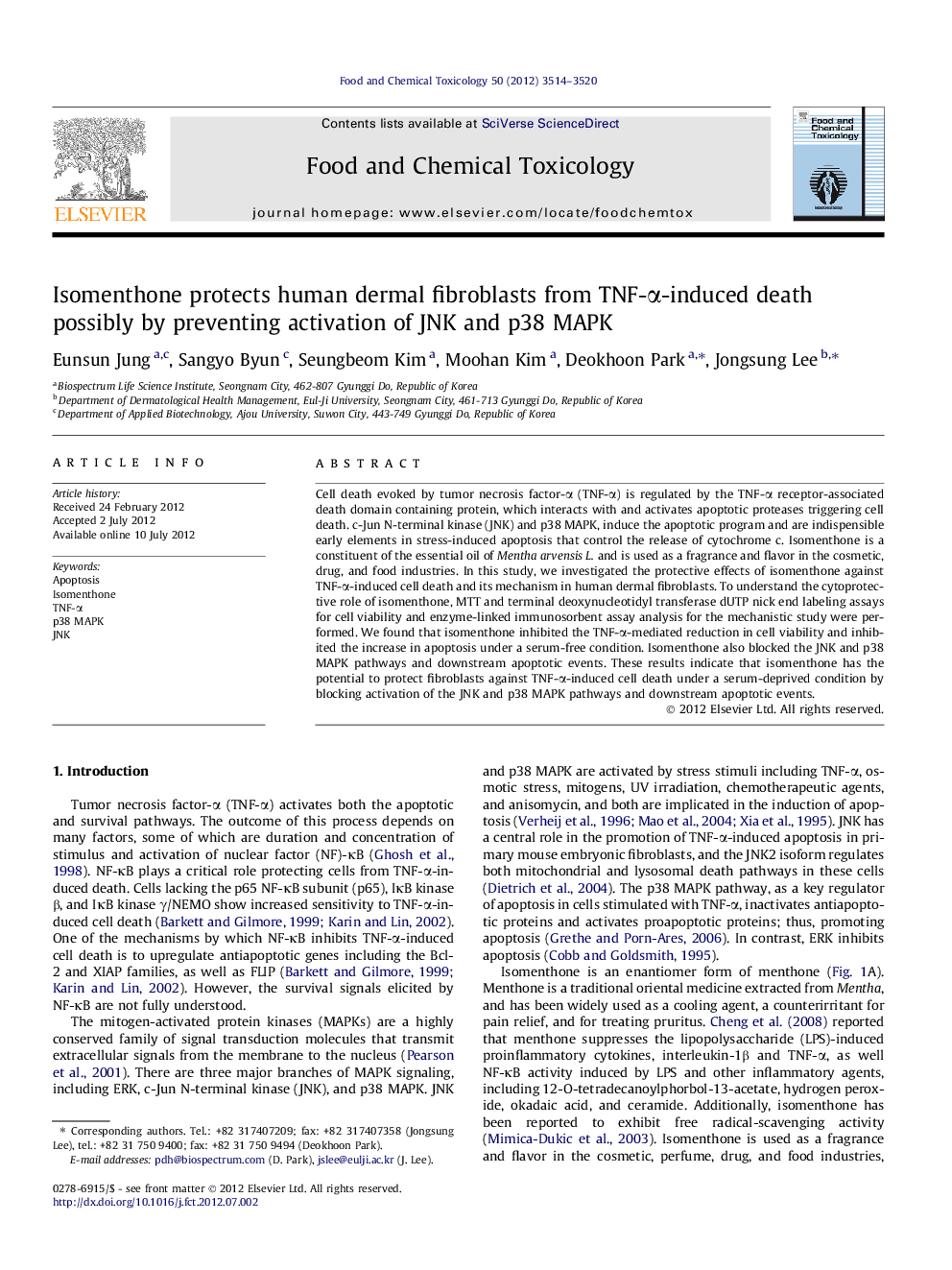| Article ID | Journal | Published Year | Pages | File Type |
|---|---|---|---|---|
| 5852691 | Food and Chemical Toxicology | 2012 | 7 Pages |
Cell death evoked by tumor necrosis factor-α (TNF-α) is regulated by the TNF-α receptor-associated death domain containing protein, which interacts with and activates apoptotic proteases triggering cell death. c-Jun N-terminal kinase (JNK) and p38 MAPK, induce the apoptotic program and are indispensible early elements in stress-induced apoptosis that control the release of cytochrome c. Isomenthone is a constituent of the essential oil of Mentha arvensis L. and is used as a fragrance and flavor in the cosmetic, drug, and food industries. In this study, we investigated the protective effects of isomenthone against TNF-α-induced cell death and its mechanism in human dermal fibroblasts. To understand the cytoprotective role of isomenthone, MTT and terminal deoxynucleotidyl transferase dUTP nick end labeling assays for cell viability and enzyme-linked immunosorbent assay analysis for the mechanistic study were performed. We found that isomenthone inhibited the TNF-α-mediated reduction in cell viability and inhibited the increase in apoptosis under a serum-free condition. Isomenthone also blocked the JNK and p38 MAPK pathways and downstream apoptotic events. These results indicate that isomenthone has the potential to protect fibroblasts against TNF-α-induced cell death under a serum-deprived condition by blocking activation of the JNK and p38 MAPK pathways and downstream apoptotic events.
⺠The effects of isomenthone on TNF α-induced cell death were investigated. ⺠Isomenthone protects fibroblasts against TNF α-induced cell death. ⺠Isomenthone blocks activation of the JNK and p38 MAPK pathway.
